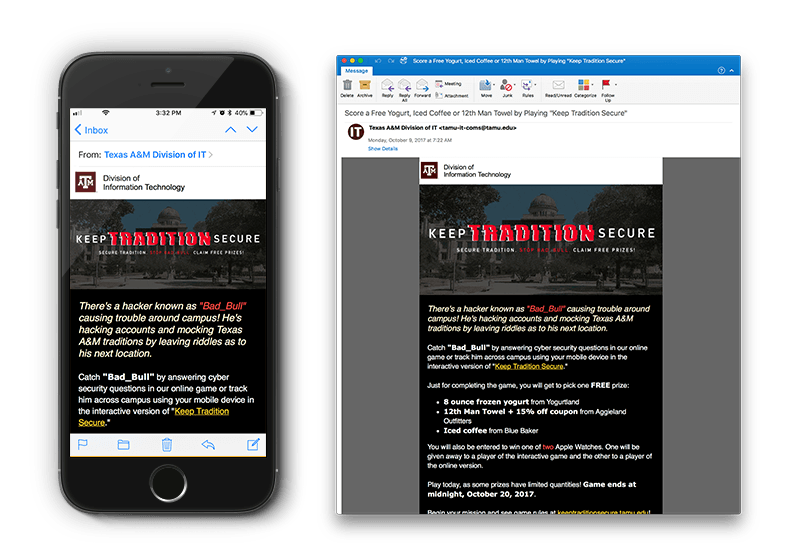About
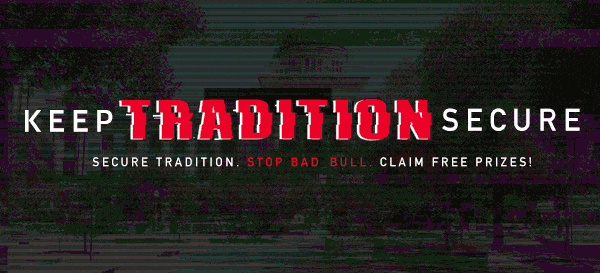
In recognition of National Cyber Security Awareness Month in October, the Texas A&M Division of IT created the “Keep Tradition Secure” website and game. The site and online game remain active, but from October 9-20, 2017, players received a coupon for their choice of sponsored, free items upon completion. They were also entered to win one of two Apple Watch grand prizes.
The campus community was invited to play the game and increase their awareness of cyber security and online safety. The game was promoted through emails, monitor cards that were placed in all open access computer labs, social media, posters and a promotional video.
In the game, players helped the hero known as “Good_Bull” track a hacker, “Bad_Bull,” across campus. Various questions about cyber security were presented and, when answered correctly, players were given a clue intentionally left by the hacker in the form of riddles regarding Texas A&M traditions.
During the contest period, there were two versions of the game. In the online version, players could participate from any location. The interactive, location-based version required players to use a mobile device with location services enabled. To successfully answer the tradition riddle and receive the next question, players of the interactive version had to trek to a specific landmark or site on campus.
The campaign was highly successful, with over 7,000 game completions during the contest period and email open rates between 35% and 45%.
Website / Game
The website and game were designed with a "glitchy" look to go along with the "hacker" theme. The site and game are available at keeptraditionsecure.tamu.edu. Prizes and award information have been removed from this version since the campaign concluded.
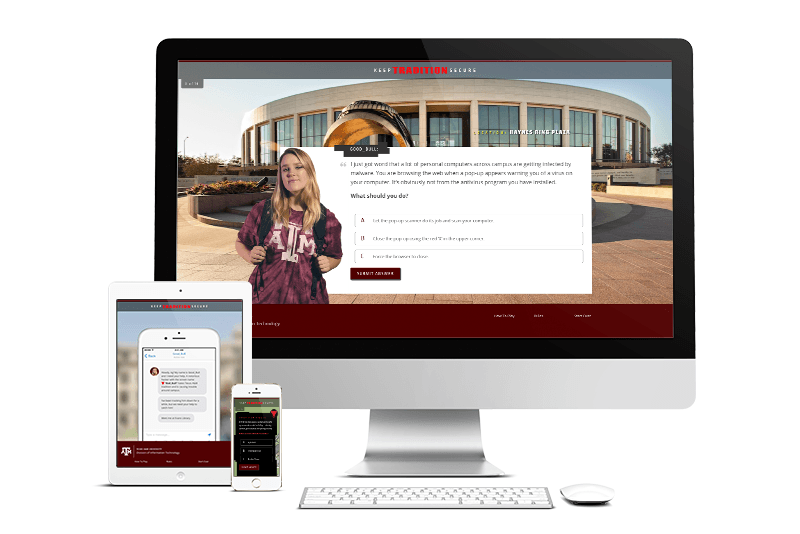
Promotional Video
The Division of IT produced a video explaining the premise of the game and the various prizes. A link to the video was embedded in promotional emails, on Twitter and on Facebook.
Signage
Posters and monitor cards were placed next to computers in the computer labs across campus.
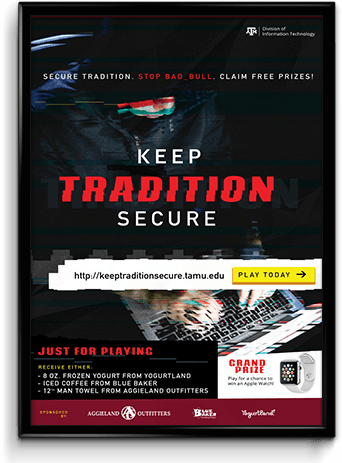
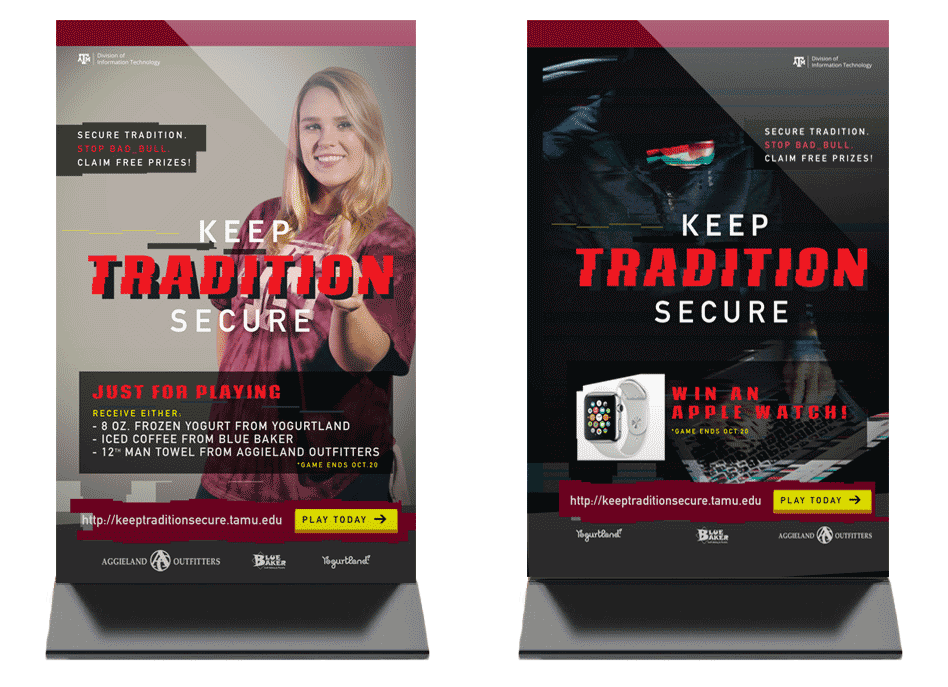
Social Media
The campaign was featured heavily on the Division of IT's social networking sites, including Facebook, Twitter and Instagram.
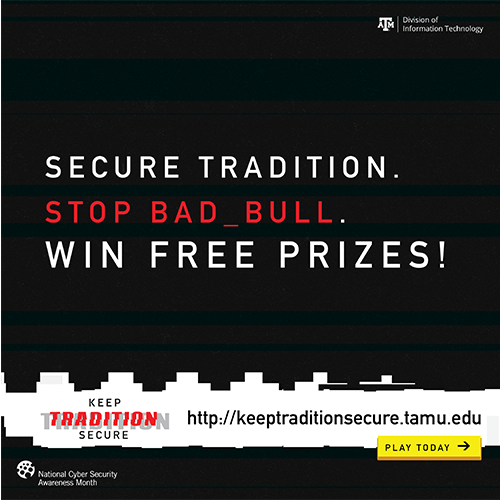
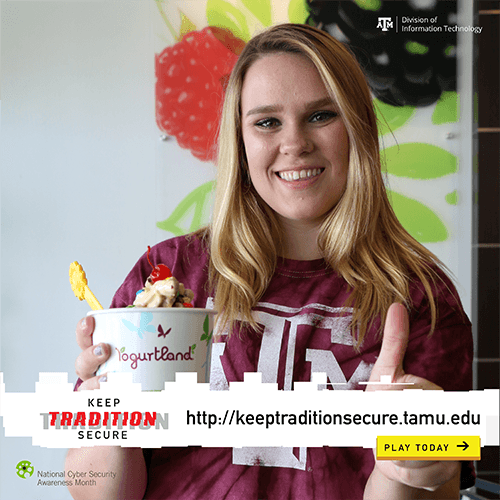
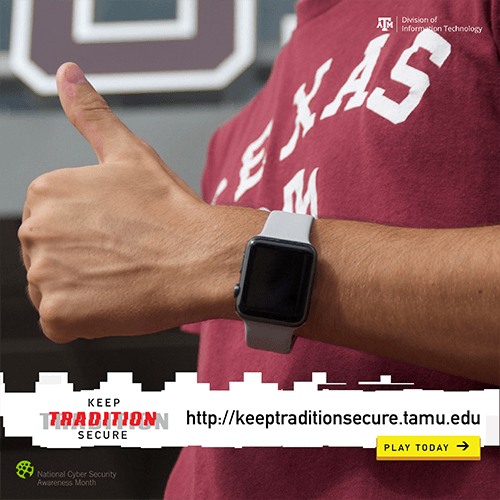
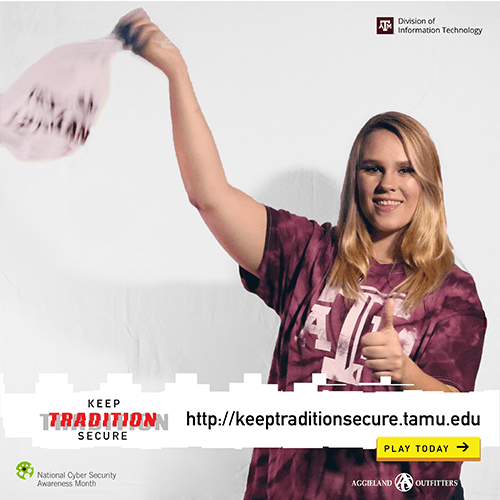
Emails
The Division of IT sent eight, targeted emails to the campus community.
